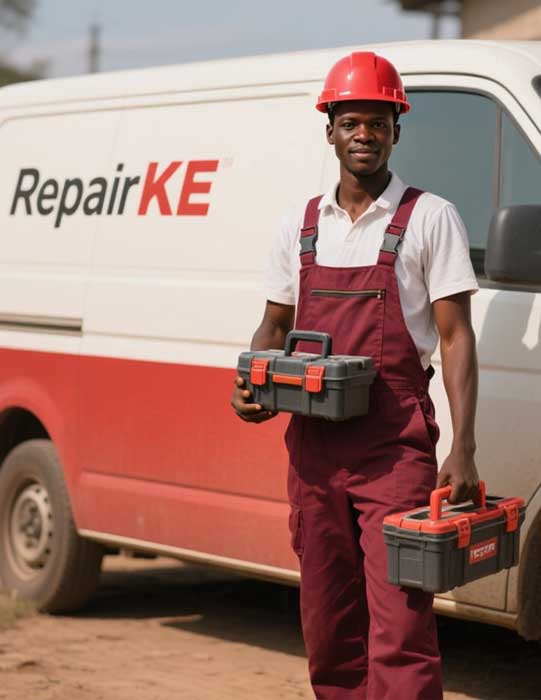Reasons Why a Washing Machine Won’t Spin
Faulty Lid Switch
A common reason a washing machine won’t spin is a malfunctioning lid switch. Most machines have a safety mechanism that prevents spinning if the lid is open. If the switch is broken or misaligned, the machine may not detect a closed lid, halting the spin cycle. Check for visible damage or listen for a clicking sound when closing the lid. A professional technician from RepairKE can test and replace the switch if needed.
"A faulty lid switch is one of the top reasons for spin cycle issues, affecting nearly 30% of washing machine repairs."
— Appliance Repair Expert
Worn or Broken Drive Belt
The drive belt connects the motor to the drum, enabling it to spin. Over time, the belt can wear out, stretch, or snap, preventing the drum from rotating. Inspect the belt for fraying, cracks, or looseness. A burning smell or unusual noise during operation may indicate belt issues. RepairKE technicians can replace the belt to restore proper function.
"Regular maintenance can extend the life of a washing machine’s drive belt by up to 5 years."
— Home Appliance Specialist
Motor Coupling Failure
The motor coupling links the motor to the transmission, transferring power to spin the drum. If the coupling is worn or broken, often due to overloading the machine, the drum won’t spin. Signs include the machine filling and agitating but failing to spin or drain. RepairKE can diagnose and replace the coupling, ensuring the machine operates smoothly.
"Overloading your washing machine can cause premature wear on components like the motor coupling."
— Laundry Equipment Technician
Issues with the Motor or Control Board
A faulty motor or electronic control board can disrupt the spin cycle. The motor may overheat, seize, or fail to receive signals from the control board, which manages the machine’s operations. Burnt smells or error codes on digital displays may indicate motor or board issues. RepairKE’s skilled technicians use diagnostic tools to pinpoint and fix these complex problems.
"Modern washing machines rely heavily on electronic control boards, making them a critical point of failure."
— Electronics Repair Specialist
Clogged or Faulty Drain Pump
If the drain pump is clogged with debris like lint or small objects, or if it’s malfunctioning, the machine may not spin as it cannot drain water properly. A humming noise or water remaining in the drum are common signs. Regular cleaning of the pump filter can prevent clogs, but a damaged pump may require replacement by RepairKE professionals.
"Cleaning your washing machine’s pump filter every 3 months can prevent spin cycle failures."
— Appliance Maintenance Advisor
Uneven Load or Overloading
An unbalanced or overloaded drum can cause the machine to stop spinning to prevent damage. Modern machines have sensors that detect uneven loads and pause the cycle. Redistribute clothes evenly or reduce the load size to resolve this. Persistent issues may require RepairKE to check the machine’s balance sensors or suspension system.
"Overloading accounts for nearly 20% of washing machine spin issues, easily preventable with proper load management."
— Laundry Care Expert
Transmission or Clutch Problems
In older machines, a worn clutch or faulty transmission can prevent spinning. The clutch allows the drum to transition to high-speed spinning, while the transmission drives the drum’s movement. Grinding noises or a drum that agitates but doesn’t spin may indicate these issues. RepairKE can assess and repair or replace these components to restore functionality.
"A failing clutch can often be repaired, saving the cost of a full transmission replacement."
— Washing Machine Repair Technician






